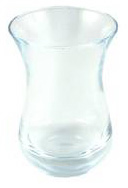I was never a fan of tea. Where I grew up (South-Central Texas), “tea” means that syrupy, icy concoction you get at Bill Miller’s barbecue restaurants. Hot tea is available, but in my circle it was mostly associated with getting through illness, and not something you would drink voluntarily if you were in good health. Given the chemical taste of most American teas, I can see why it got that reputation.
Then I lived in England for six years. Tea is pretty much the national sport there. The English can’t get through a one-hour meeting without stopping in the middle for a tea break (you think I’m exaggerating, pfeh). So I thought I might pick up tea-drinking as a habit, but I still found English teas (which are far superior to American teas) to lack something in flavour. Add to that the fact that they insist on drowning their tea in milk, of all things… let’s just say I can count on one hand, with several fingers left over, the number of cups of English tea I have ever been able to finish completely. I was pretty sure at the end of my stay in England that tea just wasn’t my thing. I mean, if you can’t get into the groove in the tea capital of the world, the game’s pretty much over, right?
Well, then I moved to Turkey.

Tea is not a sport here; it’s an art. The first time I experienced Turkish tea was in a restaurant in Kemer where a friend of mine worked. I wasn’t particularly looking forward to it, given my past experiences with tea, but he assured me that this was “not at all like any tea you’ve ever had in the West.” Of course I was intrigued, and combined with the fact that tea in Turkey is served in small, voluptuous glasses that are as sexy as they are exotic— I couldn’t resist trying it.
Wow. This was different. It certainly did not taste processed like American tea, or bland like English tea. It was robust without being obnoxious. It was immensely flavourful and subtle at the same time. It didn’t require milk or three tons of sugar to help turn it into something palatable. I felt like this was the first real tea I’d ever had in my life. I sat there and kept refilling my glass all afternoon.
Since that time, nearly three years ago now, I’ve tried many brands and varieties of Turkish tea. We have our own two-story teapot (an absolute requirement in any Turkish home), and have gone through several sets of tea glasses (they’re delicate little things, and we’re not delicate people). I thought I had seen it and done it and drank it all.
Then a couple of weeks ago we got invited to a friend’s house, and after dinner he served the most wonderful tea I’ve ever had in my life. I had to have some. He kindly gave me some to take home, and I went through it very quickly. The leaves were much larger than the Turkish tea I was used to. The flavour was richer, more aromatic than our regular tea. Turns out it was Ceylon tea, which can be purchased at our weekly bazaar. It costs over twice as much as other teas, but it’s worth it. You make it the same way you make Turkish tea.
I’ll be quick to point out that this is not the same as the stuff in the United States that comes in tea bags and is marketed as so-called “Authenic Ceylon Tea.” The stuff I’m talking about is not made by Lipton or any other tea company you’ve ever heard of, and doesn’t come complete with a fancy marketing campaign. What I’m talking about is actual loose tea from Sri Lanka, authorised by the Sri Lanka Tea Board. And yes, getting the real thing makes a huge difference.
If you’d like to try some Turkish or Ceylon tea, there are many online resources (some more expensive than others) where you can have Turkish tea and tea sets shipped anywhere in the world. I suppose Tulumba is the most popular of these, but a quick Google search can turn up many more. Authentic Ceylon tea can be purchased directly from the Sri Lanka Tea Board’s online shopping service. If you want to make it the authentic way but don’t understand how to used the double-decker teapot, drop me a line and I’ll be happy to talk you through it. Once you’ve tried tea Turkish style, you’ll never drink microwaved milky leaf-wash out of a boring ceramic cylinder ever again.